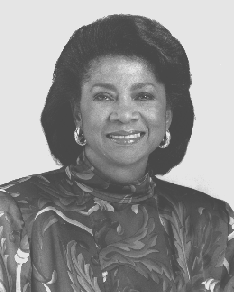Page 92
[Begin Tape 1, Side A]
Biagi: In our discussions here, what you've talked about today is some early incidents that you want to talk about, stories that you covered. So let's start with your San Quentin coverage.
Davis: During my earlier newspaper work, I had started correspondence with a number of prisoners, as all people do in public life. Prisoners write to folks whose name they see. So, anyway, I started that. I became interested mainly because of another woman reporter named Wanda Ramey. She and her husband, Dick Qurolla, were just legendary volunteers at San Quentin, and they worked with the prisoners in teaching them about film and so on as a couple. So because of Wanda's interest, my interest perked up, too, and, of course, it didn't take a lot to see that a lot of the prisoners in San Quentin, maybe the majority, at least a large portion, were African-Americans. At that time in the seventies, there was a real interest. People were saying that some people in prison were really political prisoners, etc.
In any case, I became interested in this and became friends with the warden, "Red" Nelson, whom I learned to like a lot, in spite of what some of my more liberal friends thought of my feelings about him. Through him I learned about a man named Robert Wells. This friendship was to a degree that sometimes I'd go out to do stories and I'd end up in the car with "Red" Nelson showing me around San Quentin as though I was on a tourist tour in his car, driving around, showing the facility and so on.
So anyway, he told me about this man named Robert Wells, and Robert Wells was the longest term prisoner in the California penal system at that time. He'd been in prison for forty-seven years. He was first sentenced to prison for receiving a suit that was stolen, receiving stolen property. Obviously there were infractions that kept him there, including a fight with another prisoner, in which the other prisoner died. So he was then sentenced to death row. That sentence was later commuted, but he was in for life without parole. The warden and Robert Wells had become friends over the years, so he agreed that I would do an interview with Bob Wells. He would talk with Bob Wells and he would give me permission, and I'd come in and I'd do it. So I did this story and became fascinated with this man, who had lived in the Fillmore district of the city and didn't know anything. I mean there was so much of modern life that he just had no knowledge of.
Biagi: How old a man was he at this point?
Davis: I'm guessing, but I think he was in his sixties by now. So I did this story and it turned into a documentary, and it was picked up by some of the networks and by the newspapers and so on. Robert Wells was also one of those people, I must say, that people on the left had decided was a political prisoner and should be freed, and so there was interest in him growing as news about him spread. Eventually, John Maher, the founder of Delancy Street, became also interested in Bob Wells. So there was this movement to get him paroled, and each time he thought he was near parole, it didn't happen. But eventually things worked out and he was sent to Vacaville for an evaluation.

